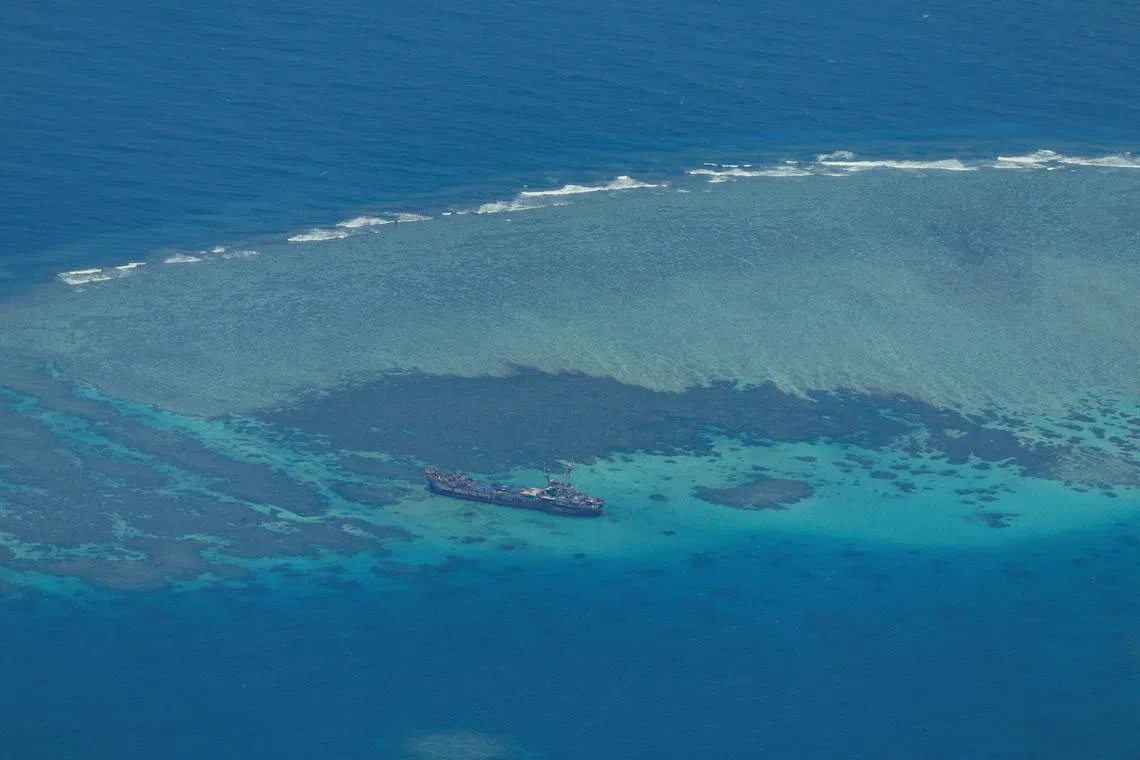Philippines says it has ‘arrangement’ with Beijing on South China Sea, but no ship inspections
Sign up now: Get ST's newsletters delivered to your inbox

Manila deliberately beached a military transport ship on a disputed shoal in 1999 to reinforce its territorial claims.
PHOTO: REUTERS
Follow topic:
MANILA – The Philippines has reached an agreement with Beijing on its resupply missions to soldiers aboard a grounded naval vessel in the South China Sea, but will not submit to inspections from China, a top security official said on July 24.
The Philippines and China, which have sparred repeatedly at sea this past year,
Philippine national security adviser Eduardo Ano said, however, the arrangement does not include agreeing to Chinese vessels conducting “on-site” inspections.
China has long been irked by Philippine missions to its small contingent of troops aboard the rusty ship Sierra Madre, which was intentionally run aground in 1999 to try to reinforce Manila’s territorial claim to the remote shoal.
“There’s no such kind of on-site inspection. What the two sides agreed on is really a common understanding,” Mr Ano told a forum.
Details of the arrangement would be kept confidential unless both parties consent to make them public, he added.
“Both sides agreed the tension will be reduced... to prevent skirmishes, anything that may lead to injury, harm to soldiers or to anyone,” Mr Ano said.
“We did not agree on anything that will undermine our position.”
China claims nearly all of the South China Sea, including territory in the exclusive economic zones (EEZs) of the Philippines, Vietnam, Malaysia and Brunei.
In 2016, a Hague-based tribunal said China’s sweeping claims had no basis under international law, a decision Beijing has rejected.
With the backing of defence treaty ally the US, the Philippines has been bolder in asserting itself in the South China Sea, engaging in joint patrols and training exercises and deploying vessels to areas of its EEZ where China has long maintained a heavy coast guard presence.
Rival vessels have clashed in the past year and heated diplomatic rows have ensued with growing frequency, prompting regional concern that an incident could escalate and trigger conflict in the important trade route.
The Philippines and the US have accused China of unlawful aggression, while Beijing has been outraged over what it sees as deliberate provocations, territorial encroachments and US interference. REUTERS

